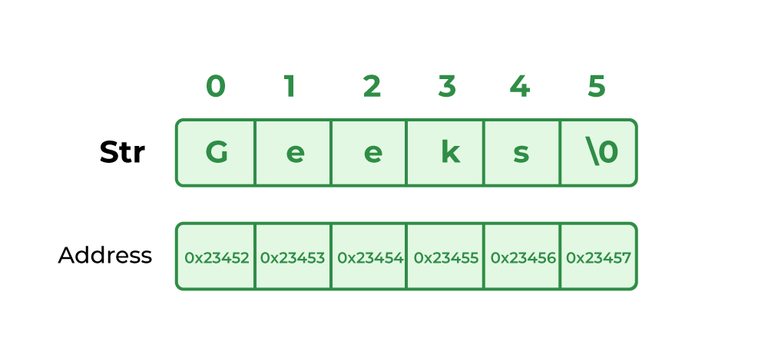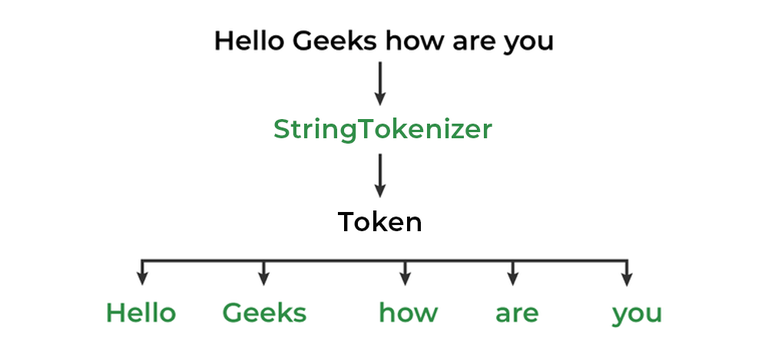Why Are Strings Immutable in Java? Best Practices and Usage Instances
Why Are Strings Immutable in Java? Best Practices and Usage Instances
Blog Article
Unalterable Strings: A Secret Part in Ensuring Data Uniformity and Reliability
In the realm of information monitoring, the significance of unalterable strings can not be overstated. The concept of immutable strings goes beyond simple technicality; it is a cornerstone in the complicated internet of data governance.
The Idea of Immutable Strings
Immutable strings, an essential principle in programming, refer to strings that can not be customized as soon as they are created. Basically, when a string value is appointed, any kind of procedure that appears to modify the string really creates a brand-new string. This immutability ensures data uniformity and integrity in applications, as it prevents unexpected modifications to the original data.
Benefits in Data Uniformity

Information uniformity is critical in various elements of software advancement, including data source administration, multi-threaded settings, and dispersed systems (Why are strings immutable in Java?). Unalterable strings add significantly to achieving this consistency by stopping data corruption because of simultaneous accessibility. In circumstances where multiple procedures or threads engage with the exact same data concurrently, immutable strings work as a safeguard versus race conditions and synchronization issues
Moreover, the immutability of strings streamlines debugging and testing processes. With unalterable strings, developers can rely on that as soon as a string is set, it will certainly remain unmodified, making it easier to map the source of mistakes and making certain that examination instances produce consistent outcomes. This dependability in information dealing with inevitably leads to much more secure and durable applications.

Implementing Immutable Strings
Ensuring the immutability of strings requires a thoughtful technique to their application in software development. One essential approach is to make string courses in a manner that stops adjustments as soon as a string object is produced. By making strings unalterable, programmers can improve data consistency and reliability in their applications.
To apply unalterable strings effectively, developers need to favor creating brand-new string things rather than customizing existing ones. This practice guarantees that as soon as a string is appointed a worth, it can not be changed. Additionally, any procedure that appears to customize the string ought to create a new string with the preferred modifications rather than altering the original.
Additionally, utilizing unalterable strings can streamline concurrency monitoring in multi-threaded environments. Given that unalterable strings can not be changed after creation, they can be safely shared amongst several strings without the threat of information corruption.
Function in Integrity Assurance
In software development, the application of immutable strings plays an essential duty in guaranteeing the reliability of data procedures. Immutable strings, as soon as created, can not be customized, ensuring that the data they represent remains constant throughout the application's implementation. This immutability property gives a level of guarantee that the information being processed will not be unintentionally altered, resulting in unanticipated outcomes or errors in the system.
By including unalterable strings right into software layout, designers can boost the dependability of their applications by minimizing the risks linked with mutable data - Why are strings immutable in Java?. Immutable strings help in stopping information corruption or unintentional alterations, which can be specifically vital when handling sensitive information or when information integrity is extremely important
Moreover, using unalterable strings streamlines concurrent processing, as several threads can securely access and share string data without the danger of one string link altering the material while another is reviewing it. This element contributes dramatically to the total dependability of the software application system, guaranteeing foreseeable and constant actions in data managing operations.
Applications and System Assimilation
The smooth combination of immutable strings right into various applications and systems is pivotal for ensuring robust information uniformity and dependability across varied technological environments - Why are strings immutable in Java?. Unalterable strings play an important duty in enhancing the integrity find out this here of data exchanges and communications within complicated software application environments. By incorporating immutable strings into applications, developers can reduce the risks related to data meddling, unapproved modifications, and inadvertent alterations, therefore fortifying the total security posture of the system
Unalterable strings can boost interoperability in between disparate systems by providing a standard style for data depiction, allowing much more reliable information processing and exchange protocols across interconnected platforms. By embracing unalterable strings in applications and system integration processes, organizations can strengthen their information infrastructure and promote the integrity and consistency of their information properties.
Conclusion
In conclusion, immutable strings play an essential function in preserving data uniformity and reliability in various applications and system integrations. By ensuring that strings can not be changed when produced, the stability of data is protected, decreasing the threat of mistakes and variances. Implementing unalterable strings can significantly enhance the reliability of systems, inevitably leading to more exact and trustworthy information processing.

Report this page